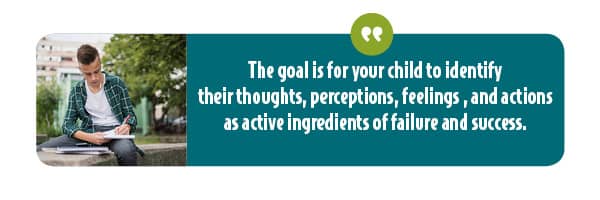When or if your teenager starts to act out and rebel, it can be difficult to know what to do as a parent. You can feel like you're losing control of your teen when dealing with teenage rebellion and disrespect.
It’s true, teens sometimes engage in risky behaviors that terrify their parents, so your concern is justified. However, many parents overreact by immediately taking away their smartphones or grounding their teen “for a year!” These reactions can backfire by increasing oppositional behavior or creating ruptures in your relationship.
So, how do you best support and help your teenager through this difficult developmental stage? Let’s explore a few practical and positive parenting solutions.
Estimated reading time: 8 minutes
 Heartmanity is proud to partner with outstanding companies that we wholeheartedly recommend so this post may contain affiliate links. You can read our full disclosure here.
Heartmanity is proud to partner with outstanding companies that we wholeheartedly recommend so this post may contain affiliate links. You can read our full disclosure here.
Understanding Teenage Behavior to Effectively Respond
A big part of effective parenting is understanding, and seeking to understand what’s happening during the teen years is imperative to avoid making assumptions or engaging in knee-jerk reactions. The one thing you can control is YOU—and your response! Therefore, a vital parental asset, especially during these years, is self-regulation. Modulating your own emotions will assist you in surfing the waves of emotional ups and downs.
It's natural for teens to test rules and limits since it's their job to forge independence and build a unique identity. Since the teenage brain is still developing executive functioning skills, their behavior is sometimes unpredictable and impulsive. One minute you’re having a reasonable and mature conversation with them and feel close and connected. The next minute, they’re angry and slamming a door.
Staying calm isn't always easy, but it's imperative for your teen's developing brain!
Teens are experiencing a process that necessitates letting go of dependency on parents and forging self-reliance. On this journey, much of the teenage push-back is their attempt to leave the shore of familiarity and embark on the open waters of adulthood. The teen years are the bridge between childhood and adulthood.
Your teenager is taking a natural step toward adulthood, a transitional time as teens separate from their parents. The key is to allow them to separate without losing connection with them. By staying calm and consistent, you can help them navigate the teen years while maintaining a strong parent-teen connection.

Teen Behaviors
To accomplish the monumental task of growing up, teenagers might:
- Argue with you
- Push you away
- Test boundaries
- Make unwise decisions
- Challenge limits
- Get mouthy and disrespectful
- Question your reasoning and intentions
Keep in mind that your teen is navigating massive changes all at once—socially, hormonally, emotionally, neurologically, and spiritually. And there is enormous peer influence as they relate to their peers more than their parents during these years.
Therefore, don’t be surprised if your teen minimizes your beliefs or challenges your reasoning. Your teen is sorting through what you have taught them; they're choosing what they agree with and what they disagree with and will discard. It can feel like a deliberate smear campaign is hurled at you! They are great at highlighting your mistakes, shortcomings, and the contradictions between what you taught them and what you are not living.
Don’t personalize it!
Be present and stay encouraged!
How to Set Healthy Boundaries and Consequences that Work
As mentioned before, a go-to for many parents when feeling a sense of powerlessness is to ground teens. Sounds like a simple solution, right?
The trouble is: how will you know and prevent a teen from sneaking out their window after you’ve gone to sleep? Or how do you physically stop a stronger and bigger adolescent when they refuse to stay home and miss a party?
I faced a dilemma with one of my sons in high school. He was determined to go to his friend’s sleepover even though he had a fever and was fighting a cough. I told him that he needed to stay home.
His reply: “How are you going to make me when I’m bigger and stronger?”
He was right.
There was no way I could restrain him; a battle like this would only end in him overpowering me. So, I walked away, took time to self-regulate, and asked myself, “What leverage do I have to act in his best interest?” The solution came quickly after quelling my swirling emotions.
I returned to his bedroom with some hot tea and chicken soup and said: “You’re right. I’m not strong enough to keep you from leaving. But what I will do is call the boy’s mother and let her know that you have a fever and do not have my permission to be there.”
I expected a huge outburst.
To my surprise, my son said, “Thanks, Mom.”

Although the above example might seem simplistic or even too easy, when you meet your teen’s needs and set a consequence that matters to them, things do go more smoothly. I could have also inquired about why going to the party mattered so much to him and volunteered to have a gathering at our house once he felt better.
Here’s where understanding comes in.
We have to look underneath at what our teen's values are.
In the scenario above, I knew how important my son’s friends were to him and also that he would want to save face. Consequences have to matter to your teen! And it's also important to remember that you are the parent, and you have the power to influence positive outcomes.
Over the years, I’ve heard from scores of burdened, frustrated, and concerned parents. They often say, “We’ve tried everything!” And it can feel that way, for sure!
However, there are several key components of setting effective and healthy boundaries; these ingredients are especially vital for teens.

Key Components for Boundaries with Teens
1 - Communicate your love for them and your understanding of the need they are trying to express.
Great results come from love. Check in with your intention before speaking to your child. Come from a curious and loving stance when seeking to understand their perspective or setting a healthy boundary in their best interest.
2 - Clearly define and state the limit or boundary.
For example, “Your curfew is 11:30 p.m. unless you call. The latest you can stay out on weekends is 12:30 a.m. On weekdays, all homework must be done before gaming, watching television, or socializing.”
3 - Choose the specific consequence if your teen disregards the limit and communicate it clearly to them.
It’s vital to let your teen know that they’re choosing versus you are forcing something on them. When they disregard a family guideline, they have decided on the consequences.
For example, “If you miss your curfew and choose to come home late, you’ll be required to stay home the following weekend.”
You can’t plan for every scenario—sometimes, you have to wing it! In these cases, you want to assert consequences that are meaningful to your teen and relevant to their behavior.
Let’s say you lost sleep the night before because your teenager missed their curfew, and you stayed up to ensure they got home safely. Have them do some of your chores as a make-up.
Or your teen lost their temper and put their fist through the bedroom wall, damaging the plaster. Require them to make the repair (skill-building) or pay for it (ownership for actions). If they don’t have enough money, give them extra chores or work out a payment plan.
TIPS for Parenting Teens:
Consider yourself when giving consequences to your teen. Parents often make a rash decision in the heat of the moment and dish out a discipline that is impossible to enforce. Or it's such a hassle for the parents that they're unwilling to follow through. Don’t make threats or choose consequences that you will not prepared to follow through on. And sometimes, that means cooling off before you set a boundary.
4 - Acquaint them with their freedom to choose (and responsibility for their choices.)
With freedom comes responsibility.
Freedom to choose poorly is necessary to learn to make better choices.
In real life, getting fired is a likely consequence if we don’t show up for a job for three days in a row without calling. Teens must make this correlation: Their choices impact their outcomes.

5 - Follow through with your teenager!
Why would your teen pay attention or respect your limits if you don’t enforce the consequences you’ve set? Following through is crucial. Until teens can take ownership of their choices and behavior, you are the lighthouse guiding their way!
Parent involvement is pivotal as a safe sounding board that assists teenagers in formulating more accurate conclusions and taking responsibility for their actions. You can encourage them by letting them make some decisions regarding their schedules, chores, and what consequences they will face for their actions.
However, involving your teen in decisions is not a substitute for your support and guidance. Teens need to know that you're there for them, even if they push back, get a little testy, or make mistakes. Your consistency will help them feel loved and supported, which is essential for their development.
Maintaining a Relational Connection Takes Time
Parenting effectively and maintaining a connection with your teen takes time. And time with teenagers can be scarce with so many things competing: sports, school, friends, work, etc. However, not having enough time with parents has been cited by teens as one of their primary problems. Studies show that teens with more involved parents (e.g. regular meals together) have significantly lower rates of problematic behaviors, such as smoking, drinking, and marijuana use.
And the less time we spend with teens, the more adolescents clam up or disregard their limits. They do not respond to parents “on demand” like Siri!
Rules without a connected relationship
will often result in rebellion.
With friends and social life being the center of their focus, it requires you to be intentional and prioritize meaningful time with your teen. Even when they object and say they don’t want to spend time with you—insist! Be creative and find common ground. And seize any time they want to hang with the family!
Regular and open communication is needed to create a healthy parent-teen connection and relationship.
Helpful Ways to Communicate with Your Teen
So, what are some effective ways to communicate with teens, even when disrespectful?
Actively Listen.
Try listening to your teen without an agenda. Allow them to express themselves and share with you. Provide a safe, nonjudgmental space. Many parents are too focused on giving advice to really HEAR their teen. Truly listening is critical.
Empathize with your teen.
Giving empathy to your teen helps to diffuse intense emotions. When a parent responds with empathy, it helps the child to feel heard and understood.
Encourage honest and open conversations about their perspectives, feelings, and experiences.
Teens need a stable adult to mirror their emotions and connect the dots of their behaviors and decisions. Since their decision-making is often short-sighted, focusing on your relationship with your teen gives you the opportunity for influence.
Acknowledge their feelings to let them know you understand what they're going through. Understanding and empathy will help build trust between you and your teen.

Advantages of Empathizing
1) Empathy dissipates intense emotions and calms the situation or conflict.
2) Empathizing creates a safe space for your teen to share and explain their experience with you.
3) The more you understand their perspective and how they think, the bigger the opportunities to:
- Identify areas of needed skills
- Teach and model the behavior you want to see (e.g. understanding others' perspectives and needs!)
- Guide them to draw more accurate conclusions
- Impart thinking skills for future challenges
- Show them they matter to you! … and you love them even when they act out!
As parents, staying calm and being a solid place for teens to discover themselves is critical. By doing so, we continue to strengthen our parent-teen connection and are there to help our teens successfully navigate this challenging growing-up period.
And don’t forget to take care of yourself! Be encouraged and stay strong during the teenage years, and continue to build a thriving parent-teen connection.
Check out the Positive Parenting Course if you're looking for online learning to be a more effective parent.
For customized parent coaching and support in parenting your teen, contact us at jennifer@heartmanity.com.









